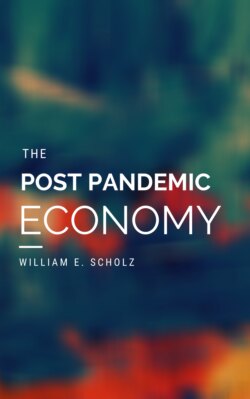Читать книгу The Post Pandemic Economy - William E. Scholz - Страница 19
На сайте Литреса книга снята с продажи.
The Economic Trauma Of The American Consumer
ОглавлениеReflected in historical Post Pandemic Art are notions of isolation, loneliness, and death [1], and echo the sentiment of those who survive a Pandemic. A famous portrait from Egon Schiele (1918) entitled "The Family," shows a devastating image of a nuclear family after the ravages of the Spanish Flu.
The Family is pictured naked and abused except for the child who is wrapped in a blanket. They look resigned to their life in a Post Pandemic World as they stare off gently into space looking into the beyond, the abyss.
The Father looks to have reddish skin as he holds his heart. The Mother is too tired and depressed to hold her child as if the act of raising a child is too much to bear.
The Family is how most American consumers will begin to feel as the American Economy is fully re-opened. Many families will have lost loved ones either in their immediate or extended families or family friends, they will have went a period of time without access to basic goods and services, and most importantly, they will suffer the psychological effects of the fear and avoidance of coronavirus. The new normal is a cautious evaluation of every step to follow guidelines such as maintaining six feet of separation from others and wearing protective equipment constantly. This psychological burden to every day existence will take its toll on the citizen who will then be required to renovate the economy under extraordinarily harsh circumstances.
The Family is strikingly different from the American portrait in the 21st Century, a picture of happy families across the Country celebrating themselves. These families wear matching clothing, smile beautifully, and look at themselves with love instead of into an abyss.
The economic trauma of the American Consumer means that America can no longer rely on consumerism as the driving force of the American Economy. This changing outlook poses a big challenge for the contemporary American Economy, which has relied on American consumerism to drive marginal GDP growth since the post-World War II era.
In an era of consumerism, gone are the days of large infrastructure projects such as the American Interstate System, The Tennessee Valley Authority, and the telecommunications infrastructure of the mid-20th Century. American consumerism should mean the consumption of an ever-increasing quantity of goods and services including the hospitality services industries and consumer plastics and electronics. However, some of the best economic projects that benefit the consumer’s life the most, are large-scale building or public works projects.
America must return to its economic roots, but to do so, it must develop the right framework to understand its shortcomings in the wake of the coronavirus pandemic.
Financial crises are not new, but they are altogether too frequent, especially for the lived experience of the millennial generation who now has dealt with two historic crises. As a Nation, and Global Leader, we must ensure America's economic leadership in the face of a rising Communist China. America must re-establish a secure and robust financial system that moves beyond the financial system of the past three-hundred years.
The world must learn from its mistakes, a core mistake being cyclical financial crises. The coronavirus demonstrated that the Global Economic Order needs fundamentally renovated. What are the core shortcomings of the global economy? Why were our global financial institutions not able to meet the demands of the coronavirus? Are there broader challenges associated with a debt based economic order that need revised?
But first we must look back at historical precedent to paint a broader picture about what went wrong. We do not aim to provide a complete financial history of the world. There are more qualified historians who have written rigorously on the topic. We aim to highlight selected examples that are relevant to the current mess that we are in.
